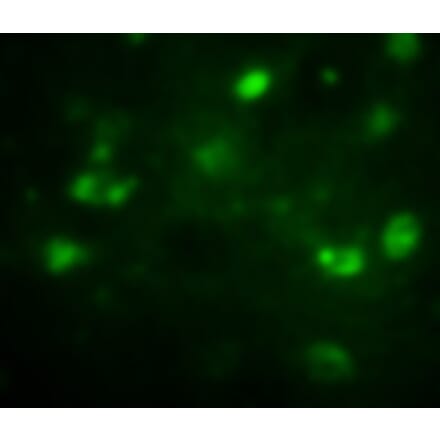+1 (314) 370-6046 or
Contact Us - Argentina
- Australia
- Austria
- Bahrain
- Belgium
- Brazil
- Bulgaria
- Cameroon
- Canada
- Chile
- China
- Colombia
- Croatia
- Cyprus
- Czech Republic
- Denmark
- Ecuador
- Egypt
- Estonia
- Finland
- France
- Germany
- Greece
- Hong Kong
- Hungary
- Iceland
- India
- Indonesia
- Iran
- Ireland
- Israel
- Italy
- Japan
- Kazakhstan
- Kuwait
- Latvia
- Lithuania
- Luxembourg
- Macedonia
- Malaysia
- Malta
- Mexico
- Monaco
- Morocco
- Netherlands
- New Zealand
- Nigeria
- Norway
- Peru
- Philippines
- Poland
- Portugal
- Qatar
- Romania
- Russia
- Saudi Arabia
- Serbia
- Singapore
- Slovakia
- Slovenia
- South Africa
- South Korea
- Spain
- Sri Lanka
- Sweden
- Switzerland
- Taiwan
- Thailand
- Turkey
- Ukraine
- UAE
- United Kingdom
- United States
- Venezuela
- Vietnam

![Flow Cytometry - Anti-BrdU Antibody [MoBu-1] (A85812) - Antibodies.com](https://cdn.antibodies.com/image/catalog/85/A85813_245.jpg?profile=product_search)

![Immunohistochemistry - Anti-BrdU Antibody [BRD.3] (A250985) - Antibodies.com](https://cdn.antibodies.com/image/catalog/250/A250986_1.jpg?profile=product_search)
![SDS-PAGE - Anti-BrdU Antibody [MoBu-1] - BSA and Azide free (A254158) - Antibodies.com](https://cdn.antibodies.com/image/catalog/254/A254158_1.jpg?profile=product_search)
![SDS-PAGE - Anti-BrdU Antibody [MoBu-1] (A250978) - Antibodies.com](https://cdn.antibodies.com/image/catalog/250/A250978_1.jpg?profile=product_search)
![Immunohistochemistry - Anti-BrdU Antibody [BRD.3] - BSA and Azide free (A254165) - Antibodies.com](https://cdn.antibodies.com/image/catalog/254/A254166_1.jpg?profile=product_search)
![Immunohistochemistry - Anti-BrdU Antibody [85-2C8] - BSA and Azide free (A254172) - Antibodies.com](https://cdn.antibodies.com/image/catalog/254/A254173_1.jpg?profile=product_search)
![Immunohistochemistry - Anti-BrdU Antibody [85-2C8] (A250993) - Antibodies.com](https://cdn.antibodies.com/image/catalog/250/A250994_1.jpg?profile=product_search)
![Immunohistochemistry - Anti-BrdU Antibody [BRD469] - BSA and Azide free (A254057) - Antibodies.com](https://cdn.antibodies.com/image/catalog/254/A254058_1.jpg?profile=product_search)
![Immunohistochemistry - Anti-BrdU Antibody [BRD469] (A250877) - Antibodies.com](https://cdn.antibodies.com/image/catalog/250/A250878_1.jpg?profile=product_search)
![Immunohistochemistry - Anti-BrdU Antibody [SPM166] - BSA and Azide free (A254085) - Antibodies.com](https://cdn.antibodies.com/image/catalog/254/A254086_1.jpg?profile=product_search)
![Immunohistochemistry - Anti-BrdU Antibody [SPM166] (A250905) - Antibodies.com](https://cdn.antibodies.com/image/catalog/250/A250906_1.jpg?profile=product_search)
![Immunohistochemistry - Anti-BrdU Antibody [SPM537] - BSA and Azide free (A254124) - Antibodies.com](https://cdn.antibodies.com/image/catalog/254/A254125_1.jpg?profile=product_search)
![Immunohistochemistry - Anti-BrdU Antibody [SPM537] (A250944) - Antibodies.com](https://cdn.antibodies.com/image/catalog/250/A250945_1.jpg?profile=product_search)
![Immunohistochemistry - Anti-BrdU Antibody [BU20a] - BSA and Azide free (A254137) - Antibodies.com](https://cdn.antibodies.com/image/catalog/254/A254138_1.jpg?profile=product_search)
![Immunohistochemistry - Anti-BrdU Antibody [BU20a] (A250957) - Antibodies.com](https://cdn.antibodies.com/image/catalog/250/A250958_1.jpg?profile=product_search)
![Immunohistochemistry - Anti-BrdU Antibody [BRD2888R] - BSA and Azide free (A254182) - Antibodies.com](https://cdn.antibodies.com/image/catalog/254/A254183_1.jpg?profile=product_search)
![Immunohistochemistry - Anti-BrdU Antibody [BRD2888R] (A251003) - Antibodies.com](https://cdn.antibodies.com/image/catalog/251/A251004_1.jpg?profile=product_search)
![Immunohistochemistry - Anti-BrdU Antibody [BRD494] - BSA and Azide free (A254109) - Antibodies.com](https://cdn.antibodies.com/image/catalog/254/A254110_1.jpg?profile=product_search)
![Immunohistochemistry - Anti-BrdU Antibody [BRD494] (A250929) - Antibodies.com](https://cdn.antibodies.com/image/catalog/250/A250930_1.jpg?profile=product_search)
![Immunohistochemistry - Anti-BrdU Antibody [BRD469 + BRD494 + BRD.3] - BSA and Azide free (A254175) - Antibodies.com](https://cdn.antibodies.com/image/catalog/254/A254176_1.jpg?profile=product_search)
![Immunohistochemistry - Anti-BrdU Antibody [BRD469 + BRD494 + BRD.3] (A250996) - Antibodies.com](https://cdn.antibodies.com/image/catalog/250/A250997_1.jpg?profile=product_search)
![SDS-PAGE - Anti-BrdU Antibody [rBRD469] - BSA and Azide free (A254179) - Antibodies.com](https://cdn.antibodies.com/image/catalog/254/A254180_1.jpg?profile=product_search)
![SDS-PAGE - Anti-BrdU Antibody [rBRD469] (A251000) - Antibodies.com](https://cdn.antibodies.com/image/catalog/251/A251001_1.jpg?profile=product_search)
![SDS-PAGE - Anti-BrdU Antibody [BRDU/3902R] - BSA and Azide free (A254185) - Antibodies.com](https://cdn.antibodies.com/image/catalog/254/A254186_1.jpg?profile=product_search)
![Flow Cytometry - Anti-BrdU Antibody [Bu20a] (PE) (A86217) - Antibodies.com](https://cdn.antibodies.com/image/catalog/86/A86221_504.jpg?profile=product_search)
![SDS-PAGE - Anti-BrdU Antibody [BRDU/3902R] (A251006) - Antibodies.com](https://cdn.antibodies.com/image/catalog/251/A251007_1.jpg?profile=product_search)
![SDS-PAGE - Anti-BrdU Antibody [BRD/1539R] - BSA and Azide free (A254204) - Antibodies.com](https://cdn.antibodies.com/image/catalog/254/A254205_1.jpg?profile=product_search)
![SDS-PAGE - Anti-BrdU Antibody [BRD/1539R] (A251025) - Antibodies.com](https://cdn.antibodies.com/image/catalog/251/A251026_1.jpg?profile=product_search)
![SDS-PAGE - Anti-BrdU Antibody [rBRD.3] - BSA and Azide free (A254025) - Antibodies.com](https://cdn.antibodies.com/image/catalog/254/A254026_1.jpg?profile=product_search)
![SDS-PAGE - Anti-BrdU Antibody [rBRD.3] (A250845) - Antibodies.com](https://cdn.antibodies.com/image/catalog/250/A250846_1.jpg?profile=product_search)
![SDS-PAGE - Anti-BrdU Antibody [rBRD494] - BSA and Azide free (A254039) - Antibodies.com](https://cdn.antibodies.com/image/catalog/254/A254040_1.jpg?profile=product_search)
![SDS-PAGE - Anti-BrdU Antibody [rBRD494] (A250859) - Antibodies.com](https://cdn.antibodies.com/image/catalog/250/A250860_1.jpg?profile=product_search)

